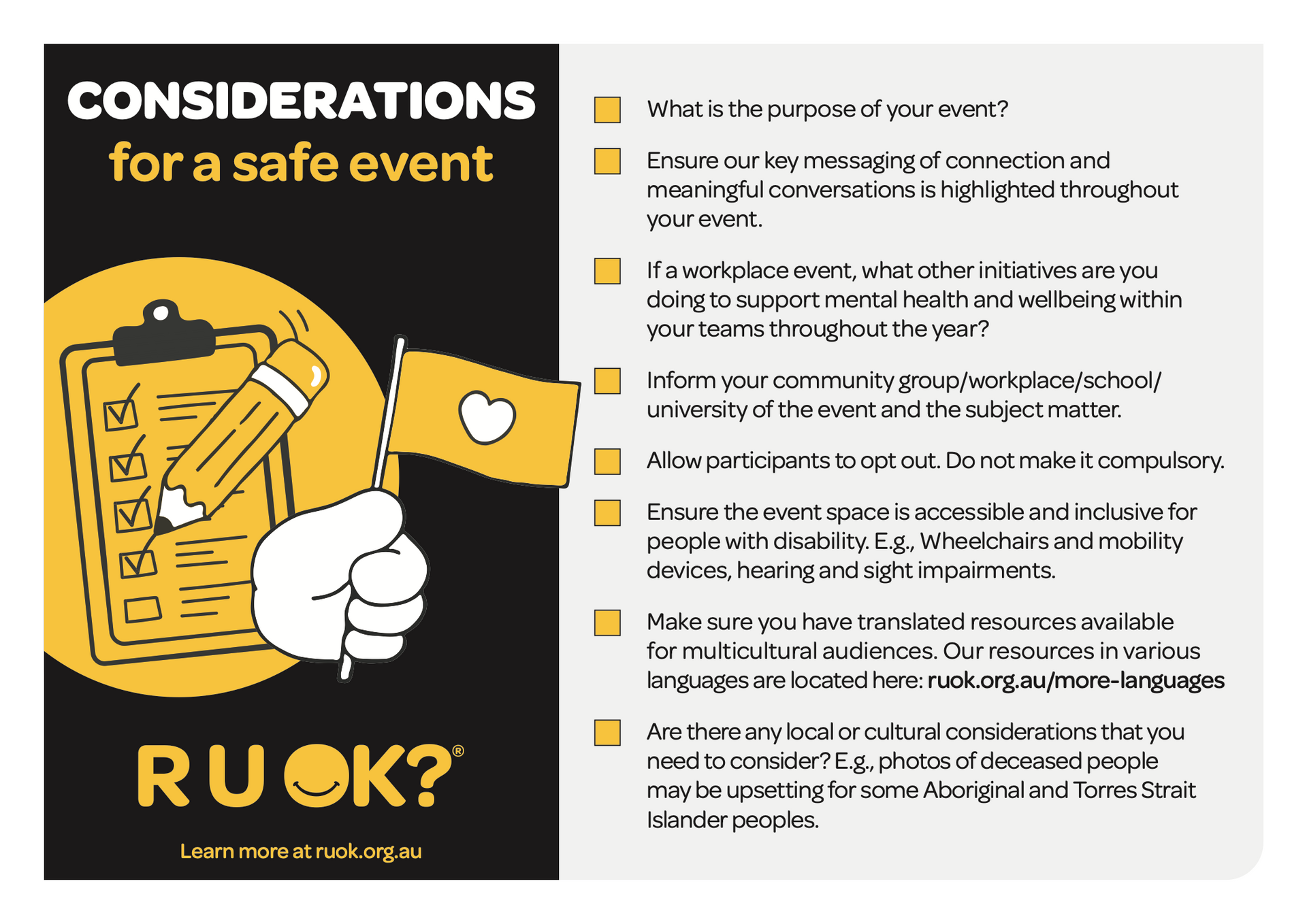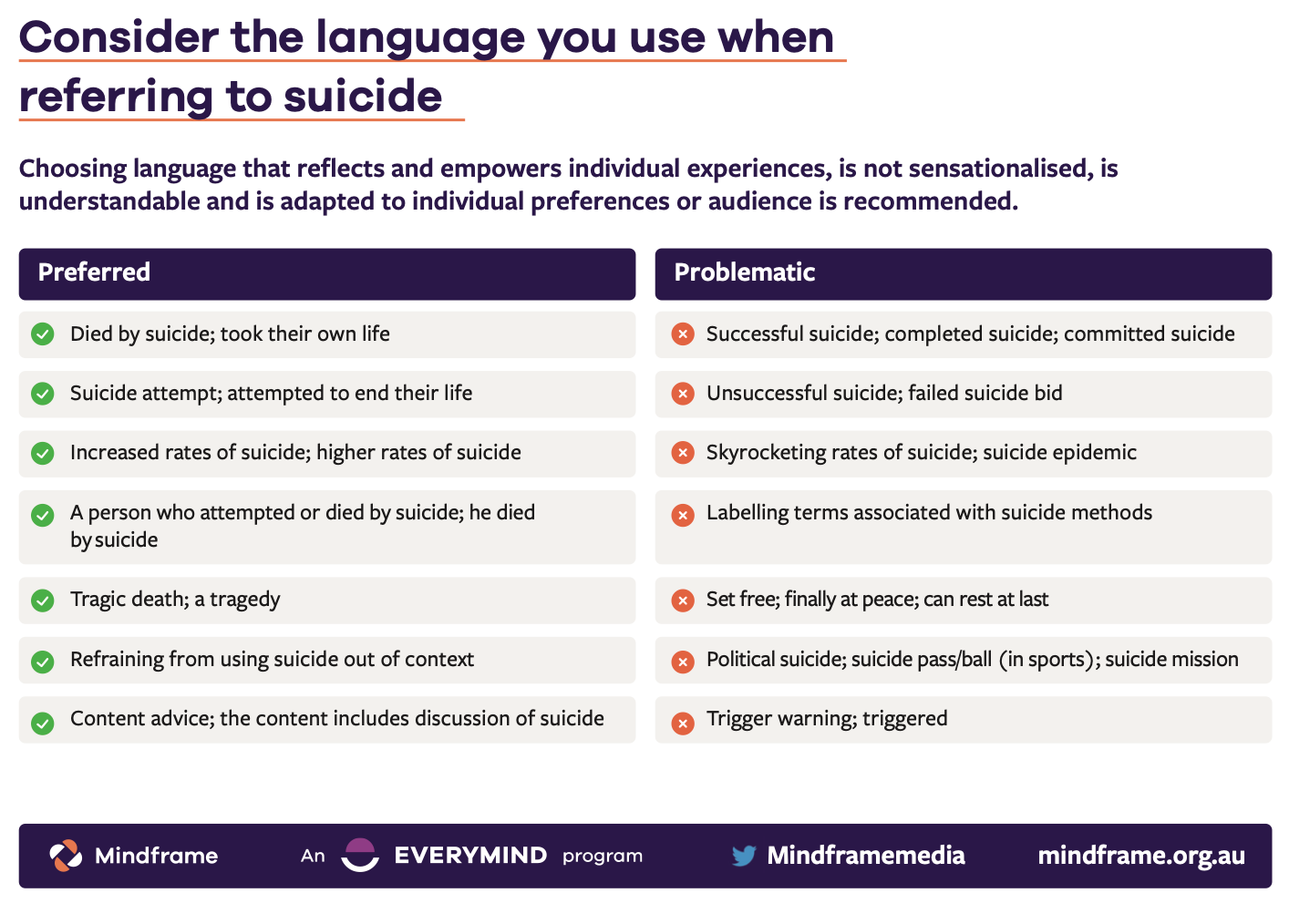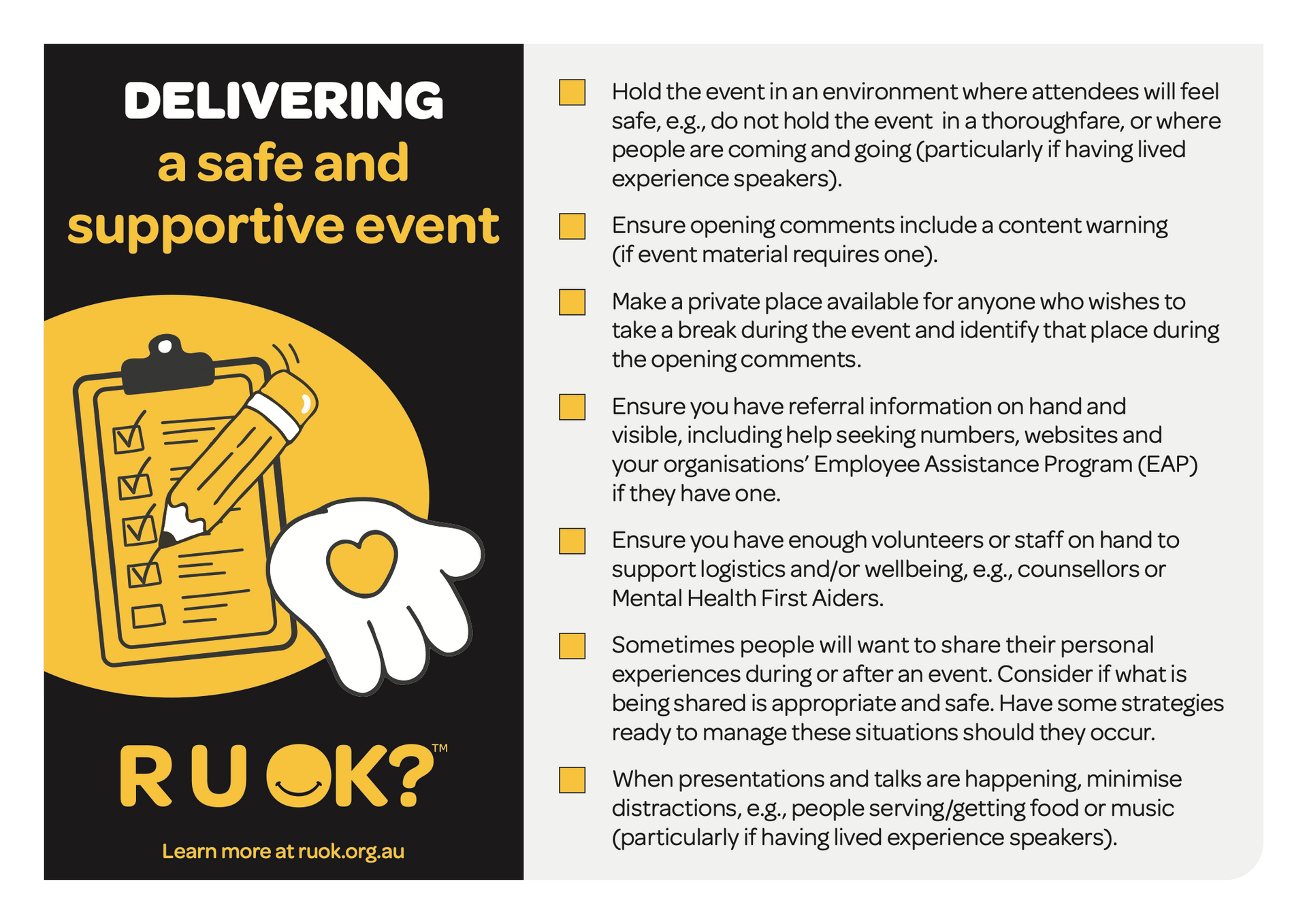R U OK? DUTY OF CARE
Tips for creating a safe and supportive event
When planning a mental health or suicide prevention event, it’s important to ensure the wellbeing and safety of those attending and/or speaking. This page is a useful tool to carefully consider the physical and social environment to help participants feel safe and supported at an event.
HAS YOUR COMMUNITY OR WORKPLACE BEEN RECENTLY IMPACTED BY SUICIDE?
It is only natural that we want to find the supports when people have recently been bereaved by suicide, finding the right service at this time is very important so that people get the help they need.
As a public health promotion, our aim is to give people more skills and confidence to reach out to someone they’re worried about and navigate a conversation if that person says, 'No, I’m not OK'. Not just to those in crisis but to anyone experiencing one of life’s many challenges. It may not the right time for R U OK? The reason being is that in this postvention phase, it is important no one feels guilt or shame around ‘they should have asked/could have asked 'Are you OK?'. When a suicide occurs and the grieving process commences, it is our role to step back and allow crisis support services to take the lead.
If you or someone you know needs some support as you grieve, please consider speaking to someone you trust, booking an appointment with your GP or calling Griefline on 1300 845 745 (7 days a week, 6am - midnight). There is a also national organisation called Standby Support After Suicide. StandBy is accessible 24 hours a day, seven days a week, providing free face-to face and/or telephone support. They can also come in to your workplace and speak to the team.
SAFE LANGUAGE
When talking about mental ill-health, suicide or alcohol and other drugs it’s important to consider what language is used. Language can have a positive or negative effect. Choosing the right language is an opportunity to be more inclusive of people’s experiences and can reduce stigma and harm
Here are some key things to consider:
- Use language that empowers and reflects peoples’ living and lived experience.
- Adapt language to suit the audience.
- Use language that is understandable.
- Avoid using language that is sensationalised.
- Ensure the language is appropriate in the context of your messaging.
- Avoid being too descriptive and detailed. E.g. do not discuss suicide location or method.
For more details, quick guidance cards and resources to download, see Our Words Matter by Mindframe. It features information on safe language for topics such as:
- Alcohol and other drugs
- Mental health
- Self harm
- Eating disorders
R U OK? RESOURCES TO SUPPORT YOU AND YOUR EVENT
HELP IS AVAILABLE
Sometimes a conversation becomes too big for friends and family. If you think someone needs extra support, encourage them to connect with their doctor, local health centre or one of the services listed on our 'Find Help' page.
Click the button below to find contact details for Australian support services.
GUIDE TO SUPPORTING R U OK?
The interactive guide to supporting R U OK? contains tips, ideas, activities and resources to help you encourage more regular, life-changing conversations and genuinely share our message in your community. It has everything you need to get involved, including suggested wording for social media posts, newsletter and email templates.
MORE RESOURCES AND TOOLS
- Mindframe Quick Reference
Guides - includes information for Aboriginal and Torres Strait Islander communities
- Workplace Mental Health Toolkit
- Trauma Informed Event Checklist
Need information in other languages?





















